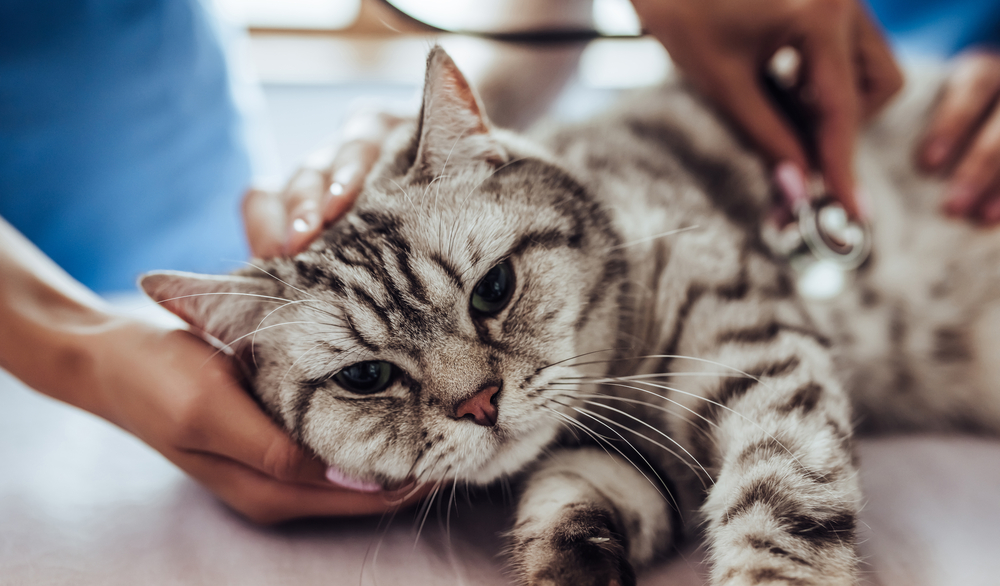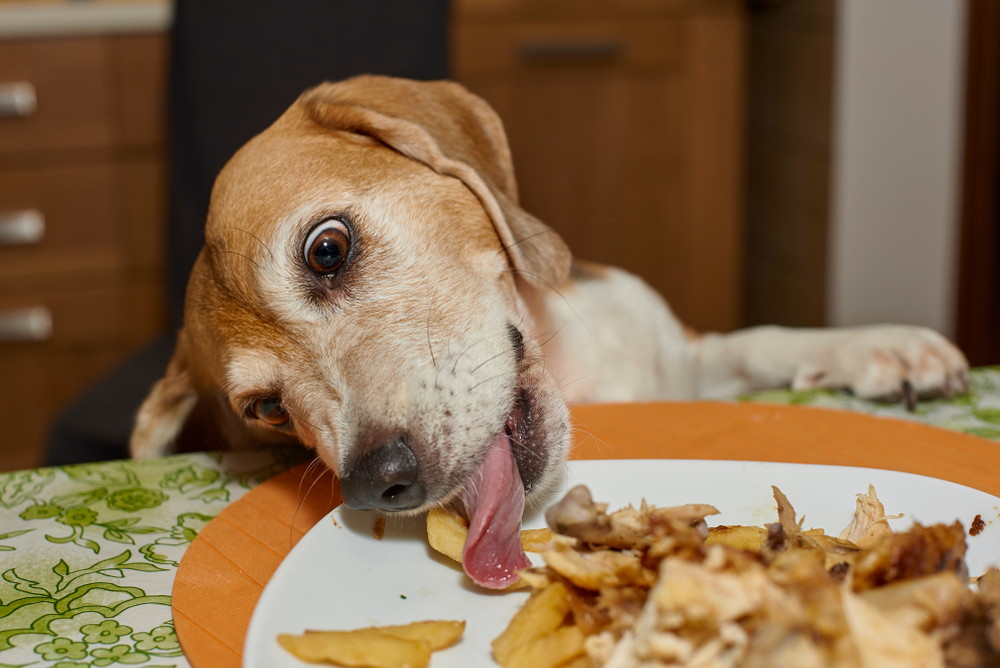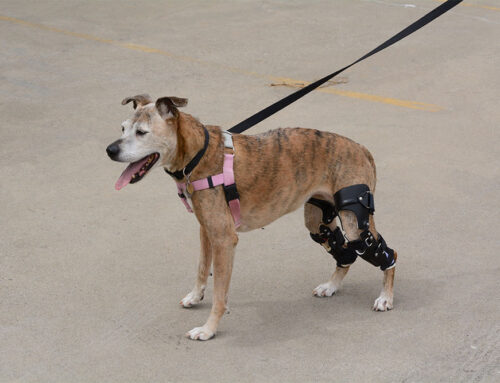Counter-surfing or persistent pleading for scraps can be hard habits to break in pets, but this behavior is more than a simple annoyance if they eat the wrong foods. Rich, fatty foods increase a pet’s risk of developing pancreatitis, an extremely painful condition that can be life-threatening. Our team at Livingston Veterinary Hospital wants you to have the information you need to protect your pet from this dangerous disease.
Your pet’s pancreas: the role
The pancreas is a long, flat organ located below the stomach that produces enzymes that assist in food digestion by breaking down fats, proteins, and carbohydrates, and insulin, which helps regulate how the body processes glucose (i.e., sugar). The insulin helps regulate blood sugar or glucose metabolism by moving glucose from the blood into cells to produce energy.
Pancreatitis in pets: the definition
Pancreatitis refers to pancreatic inflammation caused when the digestive enzymes that the organ produces, which are normally inactive until they reach the small intestine, are activated too early. The powerful enzymes damage the pancreatic tissue (i.e., pancreatic auto-digestion), and inflammatory cells and toxins are released. Pancreatitis can be acute (i.e., sudden) or chronic (i.e., recurring).
- Acute pancreatitis — Acute pancreatitis causes sudden gastrointestinal issues and abdominal pain that can worsen rapidly. If the inflammation spreads to other organs, acute pancreatitis can be life-threatening.
- Chronic pancreatitis — Pancreatitis can become chronic over time in a pet who suffers repeated bouts of acute pancreatitis.
Pancreatitis in pets: the causes
Many factors can increase a pet’s pancreatitis risk, including:
- Diet — A high-fat diet, and especially a large amount of fatty food consumed at once, causes pancreatitis in pets. Not surprisingly, pancreatitis cases increase during holidays, because people indulge their pets with holiday treats, foods, and scraps. High-fat food scraps that are difficult to digest, like turkey skin or fat trimmings, are common culprits.
- Weight — Overweight and obese pets are at increased risk for a long list of health conditions, including pancreatitis.
- Breed — Some breeds, including miniature schnauzers, Yorkshire terriers, cocker spaniels, and poodles, are more likely to develop pancreatitis.
- Infection — Certain infectious diseases, such as toxoplasmosis in cats, have been linked to pancreatitis.
- Medication — Some chemotherapy medications and antibiotics can cause inflammation of the pancreas.
- Scavenging — A pet’s dietary indiscretion—some pets try to eat pretty much anything—increases their chances of eating a food that triggers pancreatitis.
Pancreatitis in pets: the signs

Common pancreatitis signs in pets include:
- Vomiting
- Diarrhea
- Lethargy
- Fever
- Dehydration
- Decreased appetite
- Hunched posture (i.e., a sign of severe abdominal pain)
Pancreatitis signs can range in severity, and acute pancreatitis signs are usually more severe than those of chronic pancreatitis.
Pancreatitis in pets: the diagnosis
Pancreatitis signs are associated with many other health conditions, and a physical exam and diagnostic testing are needed for an accurate diagnosis and appropriate treatment. The following factors can help determine a pet’s diagnosis:
- History — Sharing information about your pet’s medical history and habits—like eating high-fat meals or garbage—can help your veterinarian diagnose your pet more quickly.
- Physical examination — Your veterinarian will examine your pet’s heart, lungs, gums, and abdomen, take their temperature, and note their weight and breed.
- Blood work — Blood tests can measure your pet’s pancreatic enzymes, such as amylase and lipase, and help assess your pet’s dehydration status.
- Radiographs — Abdominal radiographs can help rule out other issues that may cause similar signs, such as gastrointestinal obstruction.
- Ultrasound — Ultrasonography can be used to visualize the pancreas, but unless the condition is severe enough to cause abnormal tissue, this imaging technique may not be definitive.
Pancreatitis in pets: the treatment
Pancreatitis cannot be cured, but can be successfully managed with early diagnosis and prompt treatment. Pets with mild to moderate pancreatitis typically recover in one to two weeks with treatment, but more severe cases often require hospitalization for 24-hour care. Depending on pancreatitis severity, treatment may include:
- Intensive rehydration with intravenous fluids and electrolyte support
- Pain and anti-nausea medication
- Stomach protectants
- Nutritional support
- Antibiotics
Pancreatitis in pets: prevention
While pancreatitis cannot always be prevented—especially in genetically predisposed breeds—you can minimize your pet’s risk by:
- Avoiding fatty foods — Do not feed your pet high-fat treats and table scraps.
- Managing weight — Ensure your pet stays at a healthy weight.
- Supporting intestinal health — Feed your pet a high-quality diet with probiotics and prebiotics for strong intestinal health.
If you are concerned your pet may be showing pancreatitis signs, contact Livingston Veterinary Hospital to schedule an exam and diagnostic testing. And, the next time you look down from your meal and see your pet’s pleading eyes, remember that overindulging your pet can have serious consequences.







Leave A Comment